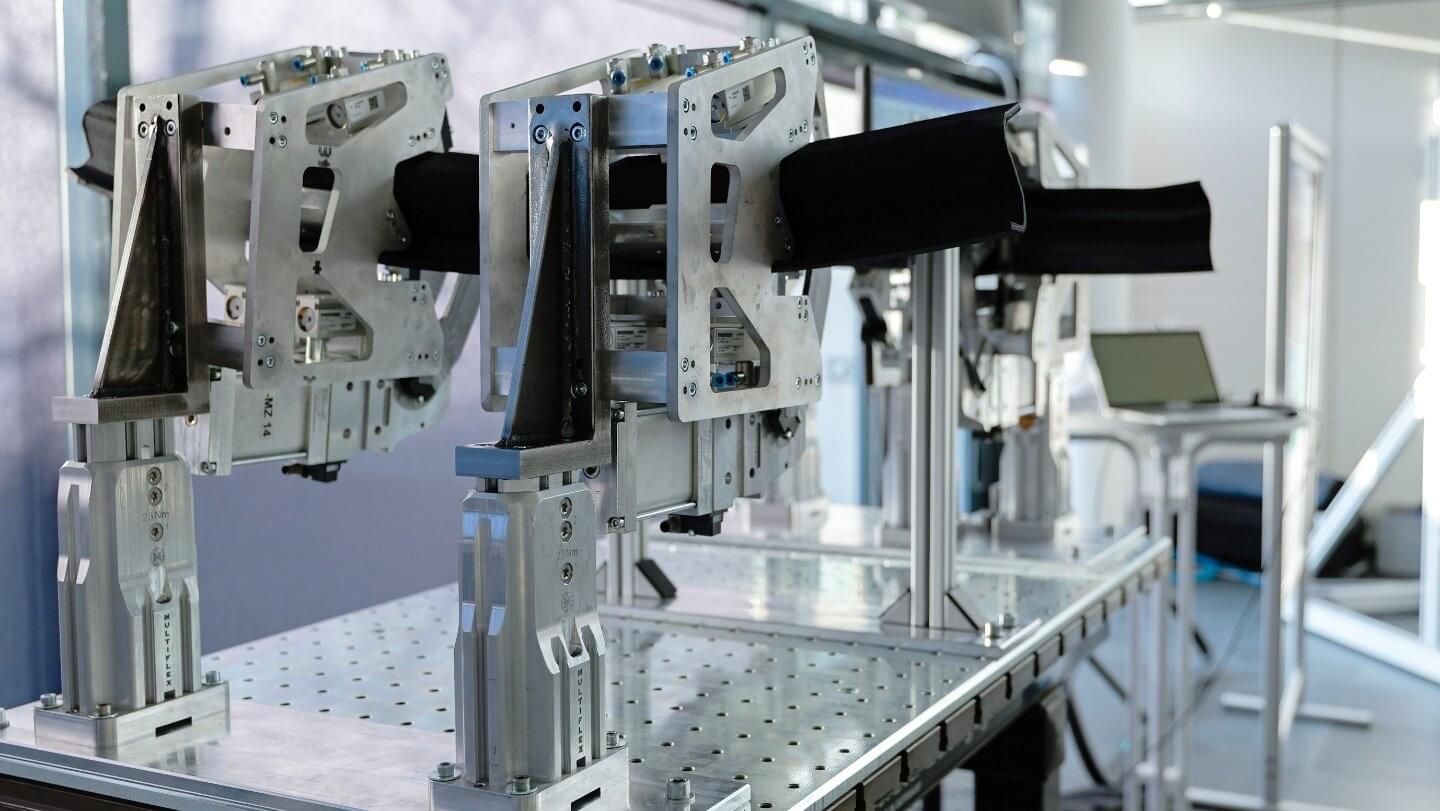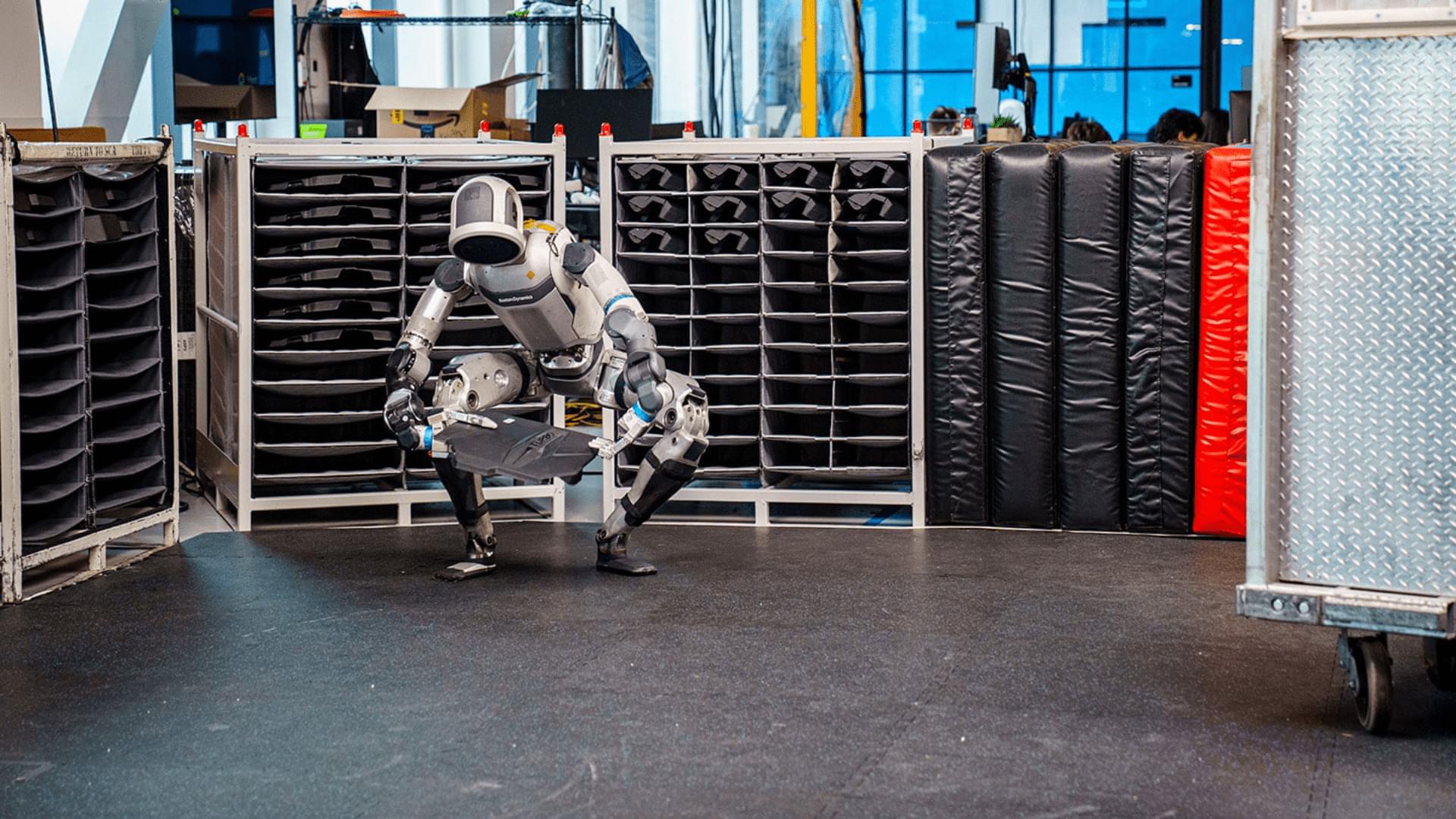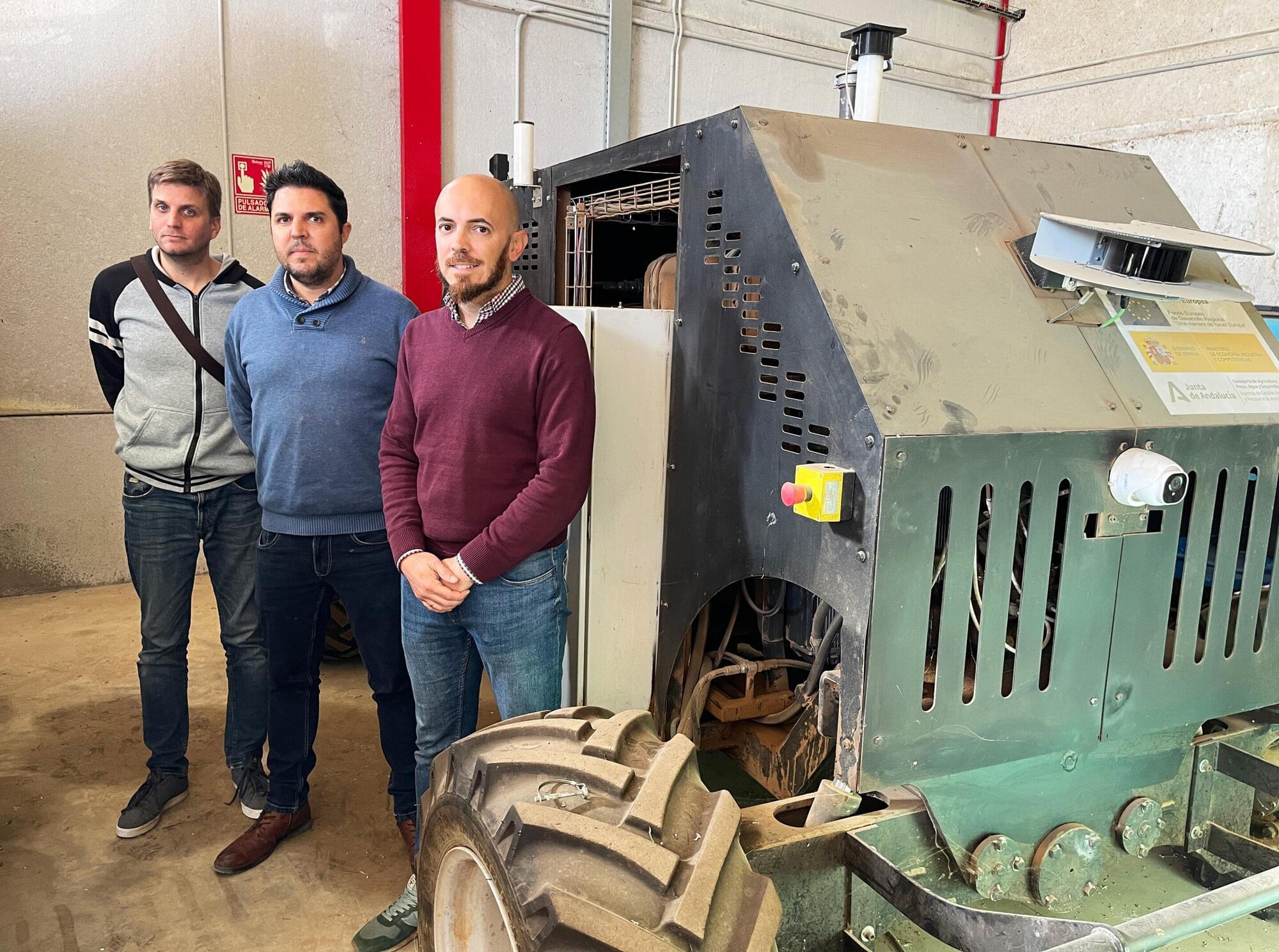Berkeley Humanoid Lite is an open-source, budget-friendly humanoid robot created by UC Berkeley researchers to make robotics research easier for everyone. It’s a customizable, 3D-printed robot designed for researchers, teachers, and hobbyists. Unlike expensive, closed-source commercial robots (often over $100,000), it costs less than $5,000 by using common parts and desktop 3D printers. The robot’s motors and body use 3D-printed cycloidal gearboxes, keeping costs low while staying sturdy. You can buy all parts from online stores, and the design works with a 3D printer that has at least a 200 × 200 × 200 mm build space. It’s 80 cm
Category: robotics/AI – Page 229


New concept for materials and production drastically reduces manufacturing time for aircraft doors
Passenger aircraft doors are still primarily manufactured by hand. A particularly time-consuming aspect is assembling the door structures using screws and rivets. Numerous intermediate steps are required to prevent direct contact between different materials—which would otherwise lead to corrosion.
However, replacing aluminum, titanium, and thermosets with primarily thermoplastic carbon fiber composites (CFRP), which can be welded together automatically without separating layers, makes the process much faster. Manufacturing time for the door structure drops from 110 hours to 4. The TAVieDA project by Fraunhofer IWU, Fraunhofer LBF, Trelleborg, and Airbus Helicopters has shown this clearly.
Another key factor in shortening assembly times is the modular design for different aircraft door variants. The project team specifically looked for components across various door models that could be standardized—and found success, for example, with the crossbeam. The researchers designed a fully automated assembly line for the most common models and developed fixtures and clamping elements suitable for resistance and ultrasonic welding technologies.
NVIDIA CEO Jensen Huang | Rebuilding Industrial Power: AI Factories & the Return of US Manufacturing
NVIDIA CEO Jensen Huang discusses the concept of AI factories—systems that transform electricity into computational intelligence—and explains how AI represents an industrial revolution that will transform every industry, create new jobs in tech and trades, and enable advanced manufacturing through digital twins and physical AI.
Follow on X:
@jacobhelberg (Jacob Helberg)
YouTube: https://www.youtube.com/@HillValleyForum.
Apple: https://podcasts.apple.com/us/podcast/the-hill-valley-forum-podcast/id1692653857
Spotify: https://open.spotify.com/show/39s4MCyt1pOTQ8FjOAS4mi.
Timestamps:
(0:00) Introduction and Jensen’s opening statement on AI’s impact on jobs.
(0:38) Welcome and initial question about AI factories.
(3:17) Discussion of AI as a paradigm shift in modern computing.
(4:51) Explanation of physical AI and its evolution from perception to reasoning.
(9:46) Analysis of what the US needs to do to win the global AI race.
(13:04) Impact of AI on the workforce and job market.
(17:55) How AI enables reshoring and manufacturing through digital twins.
(22:19) Timeline predictions for AI-enabled robots becoming ubiquitous.
(23:52) Closing

Tony Seba Predicts Robot Super Abundant Future
Brighter with Herbert

Hyundai bets $21B on Atlas humanoid robots for US car assembly
Hyundai Motor Group is taking a bold step into the future of factory automation with plans to deploy Atlas humanoid robots at its Metaplant America facility in Georgia.
These advanced bipedal robots, developed by Boston Dynamics are designed to perform tasks traditionally carried out by humans.
As per a report on Nikkei Asia, Atlas will automate up to 40 percent of vehicle assembly work at the facility by the end of this year.

Autonomous tractor navigates olive groves with optimized steering modes
A team from the University of Córdoba is developing an autonomous tractor with three different steering modes, allowing it to drive in straight lines, make turns efficiently, and shift modes in response to its trajectories.
One of the possible meanings of the name Sergius is “one who serves,” hence the name of the robotic tractor that can autonomously perform agricultural tasks in fields of woody crops. This one-of-a-kind vehicle, designed by the University of Córdoba, is part of an Agriculture 4.0 context in which agricultural tasks are being automated.
The researchers, with the Rural Mechanization and Technology Group at the University of Córdoba, Sergio Bayano and Rubén Sola, designed the vehicle from the ground up, in collaboration with two companies charged with its mechanical manufacturing and programming. The paper is published in the journal Computers and Electronics in Agriculture.

Near Space Labs nabs $20M to take its high-res imaging Swift robots into the stratosphere
When it comes to creating images of the earth from above, satellites, drones, planes and spacecraft are what tend to come to mind. But a startup called Near Space Labs is taking a very different approach to taking high-resolution photos from up high.
Near Space Labs is building aircraft that are raised by helium balloons and then rely on air currents to stay up, move around to take pictures from the stratosphere, and eventually glide back down to earth. On the back of significant traction with customers using its images, the startup has now raised $20 million to expand its business.
Bold Capital Partners (a VC firm founded by Peter Diamandis of XPRIZE and Singularity University fame), is leading the Series B round. Strategic backer USAA (the U.S. Automobile Association) is also investing alongside Climate Capital, Gaingels, River Park Ventures, and previous backers Crosslink Capital, Third Sphere, Draper Associates, and others that are not being named. Near Space Labs has now raised over $40 million, including a $13 million Series A in 2021.
